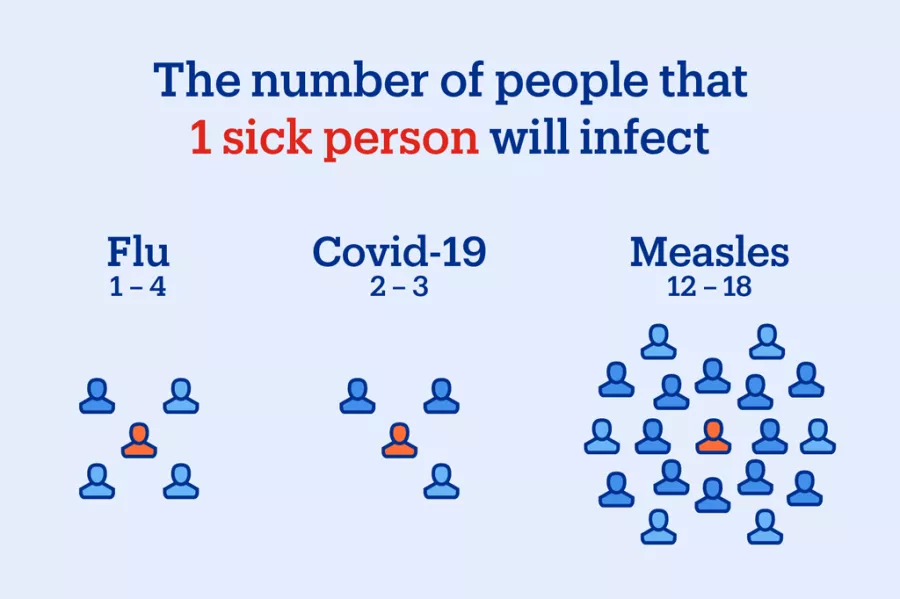
Measles was declared eliminated in the United States in 2000 thanks to widespread vaccination, but recent outbreaks in the southwest and cases in New Jersey and Pennsylvania among unvaccinated communities are causing alarm. Because the virus spreads so easily, herd immunity is vital to prevent outbreaks, especially for those who can’t be vaccinated due to medical reasons (e.g., infants or people with compromised immune systems). Here’s what you need to know:
What is measles and how is it spread?
Measles is a highly contagious viral infection that can lead to serious complications, including pneumonia and encephalitis, inflammation of the brain. Measles spreads like wildfire through the air when an infected person coughs or sneezes. Up to 90% of unvaccinated people who are exposed become infected. The virus can linger in the air for hours, making it easy to spread.
How is measles prevented?
The best way to prevent measles is through vaccination. The MMR (measles, mumps and rubella) and MMRV (measles, mumps, rubella and varicella) vaccines are safe and effective. Children should receive 2 doses:
- The first dose at 12-15 months old
- The second dose at 4-6 years old
How do I know if I’m protected?
If you had the 2 recommended childhood doses of MMR, your protection against measles is 97% and you do not need another dose. There is no “booster” for measles.
While there has been some concern about the efficacy of some vaccines given in the 1960’s, very few people were given this less effective vaccine. If you’re unsure about your vaccination history, check with your doctor who can help you determine whether you need to be revaccinated.
The bottom line?
Make sure your kids are up to date on their vaccinations and check with your doctor if you have questions about your own vaccine history.


